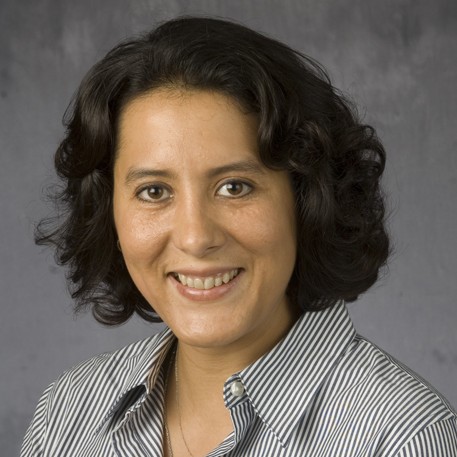
This afternoon (2/6), Dr. Alejandra Magana, a Professor of Computer and Information Technology and Engineering Education from Purdue University, will join us to discuss "A Cognitive Apprenticeship Model for Promoting Model-Based Reasoning through Computational Modeling and Simulation Practices"
Abstract:
Modern engineering workplaces now use modeling and simulation practices coupled with computational tools to aid in the analysis and design of systems. In light of the integration of these practices in the workplace, engineering educators have started to identify the breadth and depth of computation, data science, and modeling and simulation skills needed by the 21st Century STEM workforce. This agenda establishes an integrated evidence-based program of research and education centered on how people develop model-based reasoning through authentic modeling and simulation practices in science and engineering, and to use this knowledge to develop strategies that will prepare the next generation of scientists and engineers to be capable of addressing complex interdisciplinary problems. Through a series of comprehensive qualitative and quantitative research studies we attempt to understand (i) How can faculty support student model-based reasoning using computational tools? and (ii) How can students develop computational adaptive expertise?
This presentation will (a) provide an overview of ways in which engineering instructors have integrated modeling and simulation practices as part of their undergraduate curriculum; (2) identify the different forms of reasoning and knowledge used when students engage in these practices as they perform scientific inquiry or engineering problem-solving; and (3) describe opportunities and challenges students have encountered when engaging in these practices. These efforts have resulted in a cognitive apprenticeship model that can be used as a guideline to support learners in using computation meaningfully for their learning, and in overcoming challenges when engaged in this complex practice. The ultimate goal is to identify pedagogies and learning strategies that can result in students’ computational adaptive expertise.
Biography
Dr. Alejandra J. Magana is a Professor in the Department of Computer and Information Technology with a courtesy appointment at the School of Engineering Education at Purdue University. She holds a B.E. in Information Systems and a M.S. in Technology both from Tec de Monterrey; and a M.S. in Educational Technology and a Ph.D. in Engineering Education both from Purdue University. Her research program investigates how model-based cognition in Science, Technology, Engineering, and Mathematics (STEM) can be better supported by means of expert technological tools and practices such as computational and data science, and modeling and simulation practices. In 2015 Dr. Magana received the National Science Foundation’s Faculty Early Career Development (CAREER) Award, to investigate modeling and simulation practices in undergraduate engineering education. In 2016 she was conferred the status of Purdue Faculty Scholar for being on an accelerated path toward academic distinction. Dr. Magana serves as Associate Editor for the Computer Applications in Engineering Education journal and Associate Editor for the Journal of Engineering Education.
For more information about Dr. Magana’s research please visit: https://polytechnic.purdue.edu/profile/admagana/
Date: Thurs., Feb. 6th, from 2-3pm
Place: 109 Bessey or via zoom conferencing
Zoom link: https://unl.zoom.us/j/212107342